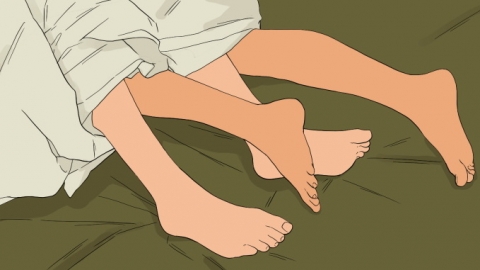What happens if you have sex as your period is ending and then experience bleeding again afterward?
Vaginal bleeding after intercourse as menstruation is ending may lead to gynecological infections, worsened pelvic congestion, prolonged menstrual period, cervical tissue damage, and increased risk of endometriosis. It's important to monitor your body's subsequent reactions. If bleeding lasts more than 3 days or is accompanied by fever or severe abdominal pain, prompt medical attention is recommended.
1. Gynecological infections: During the late stage of menstruation, the endometrium has not fully healed. Sexual intercourse may allow bacteria to enter the uterine cavity, potentially causing vaginitis or cervicitis. In severe cases, it may lead to pelvic inflammatory disease, resulting in abnormal vaginal discharge, odor, and other symptoms.
2. Worsened pelvic congestion: Sexual activity increases blood flow and congestion in the pelvic region. This may restart or increase bleeding that was about to stop, cause lower abdominal pressure or backache, and prolong recovery time.

3. Prolonged menstrual period: The endometrium is in a repair phase toward the end of menstruation. Mechanical stimulation from intercourse can disrupt this healing process, leading to renewed endometrial shedding, extended periods, and persistent bleeding.
4. Cervical tissue damage: If the cervical os has not fully closed by the end of menstruation, friction or impact during intercourse may injure the cervix, causing bleeding. Repeated trauma may increase the long-term risk of cervical lesions.
5. Increased risk of endometriosis: The negative pressure or mechanical forces during intercourse may push residual endometrial fragments backward into the pelvic cavity, increasing the likelihood of developing endometriosis, which could later cause painful periods.
Refrain from sexual intercourse during bleeding episodes. Clean the external genital area with warm water to maintain hygiene, avoiding irritating washes. Wear loose, breathable cotton underwear and change them frequently. Maintain a light diet, drink plenty of warm water, and avoid strenuous exercise to support recovery.




